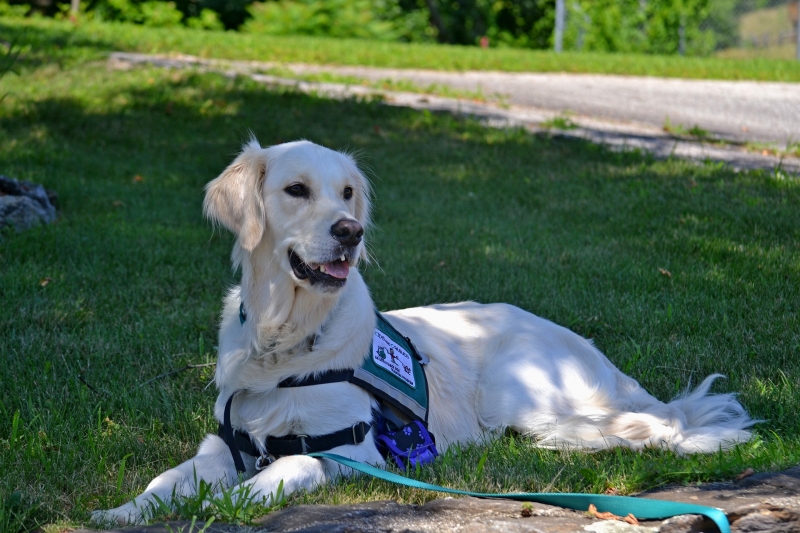The Potential Benefits of a Seizure Service Dog

Service and therapy animals are gaining prevalence in society, and it is only natural for those living with epilepsy to wonder if they could benefit from a service animal. Service dogs for epilepsy, or Seizure Service dogs, as they are commonly identified, can be separated into two broad categories:
Seizure Alerting/Predicting Dogs (SAD): Some reports have suggested that some dogs can be trained to detect a seizure before it occurs, allowing the person with epilepsy to seek a safe place or prompt other behaviours to keep themselves safe. However, such data is inconsistent, nevertheless, some studies hint at an innate ability to predict seizures in some dogs, which is corroborated by anecdotal evidence. It is clear that more research is needed.
Seizure Response Dogs (SRD): These canines are trained to keep their owner safe from harm during and following a seizure. Their actions can include:
- Cushioning their owner’s fall by getting in between the ground and their owner’s body
- Activating an alert system or device to summon additional help
- Barking to notify others that a seizure is occurring
- Bringing medications or a phone to their owner
- Lying next to their handler when they are experiencing a seizure so that they can be comforted when they are in the postictal state, which usually last anywhere from 5-30 minutes, sometimes even longer
Seizure Response Dogs are certainly not a replacement for human supervision, but are good companions that may give their owners a sense of freedom, independence and security, as many people living with epilepsy are anxious or fearful about experiencing a seizure in public. Under BC’s Guide Dog and Service Dog Act, Seizure Response Dogs are free to enter and use any place, accommodation, building or conveyance to which the public is invited or has access, without any additional charge. Furthermore, there is some scant evidence that service dogs can decrease frequency of seizures, but this finding requires more research and the exact mechanism and cause is not yet known.
In Canada, the Lions Foundation of Canada trains a wide variety of service dogs, such as Vision Dogs, Hearing Dogs, Diabetic Alert Dogs, Autism Assistance Dogs and Seizure Service Dogs, amongst others. Having launched a separate Seizure Dog Program in 2001, the Lions Foundation trains dogs through their own training program, Dog Guides Canada, and provides these fully trained canines to individuals at no cost.
For more detailed information about who is best suited for a Seizure Service Dog and details on how to apply, please visit the Lions Foundation of Canada website.





